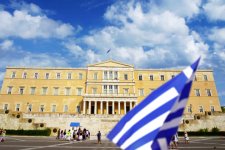There are too many philosophers to count, but these are the ones I am studying at the moment. It's fascinating to me how influential the Greek philosophers are. Here's some things I am learning:
#1 Socrates
If philosophy had a poster boy, Socrates might very well be it. The father of Western philosophy, Socrates was a gadfly to Athenian society, questioning everything and Master to Plato. Known for the Socratic Method and his unflinching commitment to truth, Socrates' influence is immeasurable despite never having written a word.
#2 Plato
Rightly succeeding his mentor on this list, Plato's Academy saw him birth the first "university" of its kind. His unabashed idealism, immortal Forms, allegories like the Cave, and the pursuit of 'The Good' in moral philosophy set the stage for much intellectual discourse.
#3 Aristotle
Aristotle, another of Plato's students, had a more grounded approach to philosophy than his predecessor. With establishing principles of logic and reason, and contributions to virtually every field of academia, from poetry to physics, Aristotle's body of work remains foundational.
#4 Heraclitus
Heraclitus, famed for the idea that "change is the only constant," viewed the cosmos through a lens of process, flux, and an everlasting Logos that governs the world. Although little of his work survives, his influence on ancient and modern thinkers is profound.
#5 Epicurus
Known for his eponymous philosophy, Epicurus taught that the greatest good is to seek modest pleasures in order to attain a state of tranquility, freedom from fear (ataraxia), and absence of bodily pain (aponia). Often misunderstood, Epicureanism is starkly different from the modern use of 'epicurean' - it's much less about a luxury lifestyle and more about ethical considerations regarding personal fulfillment.

